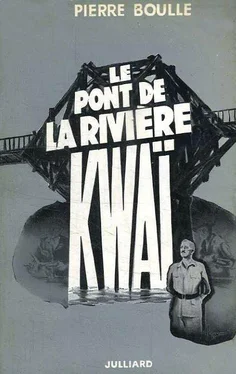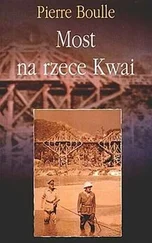Shears thought deeply for a long time as he studied Joyce’s map.
“It’s a plan worth considering,” he finally announced. “Now that you’ve seen the spot for yourself, of course, you’re in a position to tell us what you think of it. And the result will be worth taking a risk. What else did you see from your eyrie?”
The sun was well up by the time he had reached the top of the hill. His two guides, who had come back during the night, were anxiously waiting for him. He was worn out. He had lain down to rest for an hour, and had not awakened till the evening. He apologized when he mentioned this lapse on his part.
“Right. I suppose you slept again during the night? That was the best thing to do. And then next morning you went back to the spot you had chosen?”
“Yes, sir. I stayed on a day longer. There was still quite a lot I wanted to see.”
After devoting the first part of his reconnaissance to lifeless objects, he had felt an urge to look at living men. Until then he had been spellbound by the bridge and by the features in the landscape with which his future activity was now closely linked, but suddenly he had felt overwhelmed by the sight of his wretched comrades, whom he could see in the lens of his binoculars, reduced to an abject state of serfdom. He knew what Japanese methods were like in P.O.W. camps. There were stacks of secret reports describing the daily atrocities committed by the exultant enemy.
“Did you see anything unpleasant?” Shears asked him.
“No, sir; not that particular day. But I felt completely shattered at the thought that they had been working like this for months, in this climate, with not enough to eat, rotten huts to live in, no comfort at all, and the constant threat of—well, you can imagine what sort of punishment.”
He had observed each of the teams one after the other. He had scrutinized each individual through his glasses and had been horrified by the state they were in. Number One frowned as he said:
“In our job you can’t afford to be too soft-hearted, Joyce.”
“I realize that, sir. But really, they’re nothing but skin and bone. Most of them are covered with ulcers and jungle sores. Some of them can hardly walk. No civilized person would even think of making men work in such a crippled state. You ought to see them, sir. It’s enough to make you weep. The team pulling the rope to drive in the last few piles—absolute skeletons, sir. I’ve never seen such a ghastly sight. It’s utterly criminal.”
“Don’t worry,” said Shears, “we’ll soon get our own back.”
“Yet I couldn’t help admiring them, sir. In spite of their obvious physical hardships, not one of them seemed really beaten. I had a good look at them. They make it a point of honor to behave as though their guards weren’t there—that’s exactly the impression I had. They behave as though the Japs just didn’t exist. They’re at work from dawn till dusk, and they’ve been at it like this for months, probably without a single day’s rest. But they didn’t look as though they’d lost hope. In spite of their ludicrous dress, in spite of their terrible physical condition, they couldn’t be taken for slaves, sir. I could see the expression on their faces.”
All three fell silent for a moment, each lost in his own private thoughts.
“The British soldier’s got any amount of guts when he’s really up against it,” Warden finally observed.
“What else did you see?” said Shears.
“The officers, sir, the British officers. They’re not being made to work. They’re all in charge of their men, who seem to take more notice of them than of the Japanese guards. And they’re all in full uniform.”
“In uniform!”
“Badges of rank and all, sir. I could count the pips on their shoulders.”
“Well, I’ll be damned!” Shears exclaimed. “The Siamese had told us about this point and I refused to believe them. In every other camp they’re making all the prisoners work, irrespective of rank. Were there any senior officers?”
“A colonel, sir. That must be the Colonel Nicholson we’ve heard so much about, who was tortured when he first arrived. He was out there all day. I suppose he feels he should be on the spot in case there’s any more trouble between his men and the Japs—because I bet you there has been trouble. I wish you could have seen those guards, sir. Monkeys dressed up as men! The way they drag their feet and slouch around, you’d never take them ^ for anything human. Colonel Nicholson’s a model of dignified behavior. A born leader, that’s how he struck me, sir.”
“He certainly must have an amazing influence, and exceptional qualities as well, to be able to keep the men’s morale so high in such appalling conditions,” said Shears. “I take my hat off to him.”
Surprise had followed surprise in the course of that day. Joyce went on with his story, obviously eager to let the others share in his astonishment and admiration.
“At one moment a prisoner from one of the groups furthest away came across the bridge to speak to the Colonel. When he was six paces off he snapped to attention, sir—in those funny clothes they all wear. Yet there was nothing funny about it. A Jap came rushing up, screaming and waving his rifle about in the air. I suppose that man must have left his team without permission. The Colonel just gave the guard one of those looks of his, sir. I saw the whole thing. The Jap thought better of it and shambled off. Incredible, isn’t it? But that’s not all. Just before dusk a Japanese colonel came on to the bridge—Saito, probably, the one who’s said to be such a brute. Well, believe it or not, sir, when he went up to Colonel Nicholson, he almost kowtowed—there’s no other word for it. There are certain ways you can tell… Colonel Nicholson saluted first, of course, but Saito smartly returned the salute—almost nervously, I could see! Then they walked up and down together. The Jap looked exactly like a junior officer being given his orders. It really cheered me up to see that, sir.”
“I can’t say I’m sorry to hear about it myself,” Shears muttered.
“Here’s to Colonel Nicholson,” Warden suddenly proposed, raising his glass.
“You’re right, Warden, here’s to him—and to the five or six hundred other poor beggars who are going through such hell because of this bloody bridge.”
“All the same, it’s a pity they won’t be able to help us.”
“It may be a pity, Warden, but you know what we’re up against. We have to go through with it on our own. But let’s get back to the bridge…”
They spent the whole evening discussing the bridge and studying Joyce’s sketch-map in a fever of excitement, occasionally questioning him on some specific detail or other, which he promptly explained. He could have drawn every bit of the bridge and described every eddy in the river from memory. They then got down to the plan he had suggested, making a list of all the operations it would entail, working each of those out in detail, keeping a sharp lookout for any unforeseen snag that might conceivably crop up at the last moment. Then Warden went off to receive the incoming messages on the radio in the room next door. Joyce was silent for a moment.
“Look, sir,” he finally blurted out, “I’m the best swimmer of the three, and now that I’ve been over the ground…”
“We’ll discuss that later,” said Number One.
Shears realized that Joyce was at the end of his tether when he saw him stagger on his way to bed. After spending three days lying in the undergrowth studying the lie of the land, he had set off on the return journey during the night and got back to camp by marching without stopping, except for a short halt for food. Even the Siamese had hardly been able to keep up with the pace he had set. They were now busy describing with admiration how the young white man had managed to walk them off their feet.
Читать дальше











